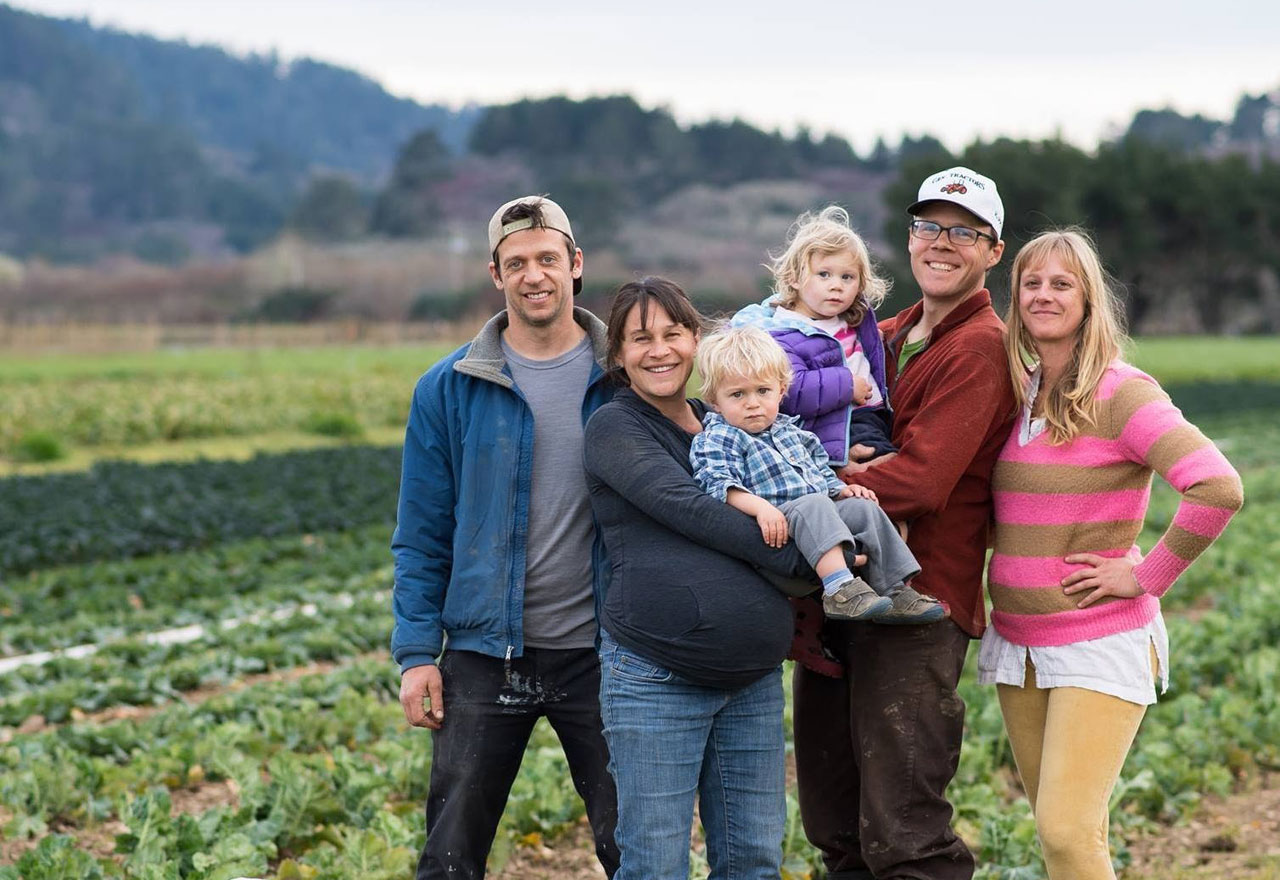“Turns out,” says Teresa Kurtak, “there’s really nothing else that comes close to being as satisfying as being a farmer.”
Although much of her childhood was spent on her family’s cattle ranch in eastern Washington, Kurtak did not expect that she would find her own life’s work in farming.
Having dedicated years to academic pursuits, envisioning a career in food policy, Kurtak feared that by deciding to farm she would be letting go of something she held close to her heart—her passion for changing the world.
What she didn’t expect was her ability to effect positive change through organic farming and the sense of reward that would follow.
Now, nearly 10 years after the inception of Fifth Crow Farm, Kurtak embraces farming and recognizes the significance of managing a business that not only supports her and her family, but is also responsible for sustaining the livelihood of 20 full-time employees.
Built from scratch on a shoestring budget, big dreams, and a lot of sore muscles, Fifth Crow Farm is the dream child of three college-educated idealists.
All graduates of the University of California, Santa Cruz Farm & Garden Program, Teresa Kurtak, Mike Irving, and John Vars share an ideology—a belief that sustainable agriculture can offer solutions to the environmental and social issues of our time.
By luck, or by fate, a series of events led these young entrepreneurs to one another in 2006 and, two years later, to a decisive dinner party with the landowners of a fallow farm along the central coast of California.
Serendipitously, the lease on this 80-acre parcel was ripe for new management, and when they went for a visit it was love at first sight.
Kurtak credits their success, in part, to happenstance. “We were lucky enough to land on a good piece of land with property owners that were willing to provide leases to allow our business to grow,” she says.
Lack of capital and access to land are among the biggest challenges faced by beginning farmers today; creative land acquisition has become commonplace. And in some cases, restrictions meant to protect open space and even sustainable farmland can give rise to unforeseen obstacles to farming development.
Midway between San Francisco and San Jose, Cloverdale Valley is no exception. While it is ideal to be farming one of the most fertile and beautiful landscapes in the country, attempts to purchase the acreage they’re farming have proven futile.
Kurtak explains, “If you want farmers to invest in the things that make farming sustainable in the long run—soils, infrastructure, hedgerows—there has to be security for the farmers.”
To ensure their foothold, Fifth Crow has recently become the tenant of a land trust adjacent to their farm. Here, they will expand their apple production, adding another 800 trees to their existing 250-tree orchard.
They currently grow over 25 varieties of apples on just over two acres—dwarf trees, tightly spaced. The diversity allows them to harvest fresh apples from early August through December. The season can start as early as the end of July, when the first of the Pristine variety comes ripe.
Nearby, two flocks of laying hens pasture, each with some 250 birds, all heritage breeds: Rhode Island Reds, Americaunas, Black Australorps, Welsummers, and California White Leghorns.
The hens graze on a nutritious pasture of clover, alfalfa, chicory, plantain, and grass. Each week they are moved to new forage. Raising hens humanely in this labor-intensive way demands more resources and a deep commitment to growing the most nutritious food possible.
While eggs aren’t the most lucrative part of their business, laying hens close the loop.
Kurtak compares their farm to the awe-inspiring monocultures, just 70 miles south in Watsonville and Salinas, where blankets of strawberries and romaine choke out wildlife habitat.
She explains, “It’s part of a sustainable farm to have animals; animals should be part of farms, and farms should be diversified. It’s critical to view farmland as an ecosystem, where wildlife can still happen.”
Fifth Crow’s certified organic eggs are renowned for their flavor and freshness at local farmers markets.
Currently, 70% of Fifth Crow’s business is direct-to-consumer at markets, while the remaining 30% is split evenly between their 200-member CSA and wholesale accounts.
On their farm stand, next to the eggs and apples, shoppers find flowers, dried beans, vegetables, and fruits…all certified organic by CCOF.
Crow decided to become certified out of the gate. Certification allows them to compete among the high density of farms in California, while supporting the legitimacy of the USDA label.
Plus, “Certification keeps us on our toes,” notes Kurtak. While they are busy farming, their certifier informs them of current issues in organics while keeping them true to their goals and ideals.
However, there are gaps in organic certification that Fifth Crow seeks to fill: primarily, social justice issues that govern how workers are treated. Offering their workers paid sick time, health care, and a commitment to working parents, Fifth Crow stands out as a praiseworthy employer.
Kurtak elaborates, “We want to build agriculture that is economically viable, socially just, and ecologically sound. To us, this means stewarding our land in a way that not only respects, but improves habitat for wildlife and builds better soil for future farmers. It also means creating a healthy, fulfilling, and fair work environment, and providing our customers with the best tasting, most nutritious, highest quality food possible.”


